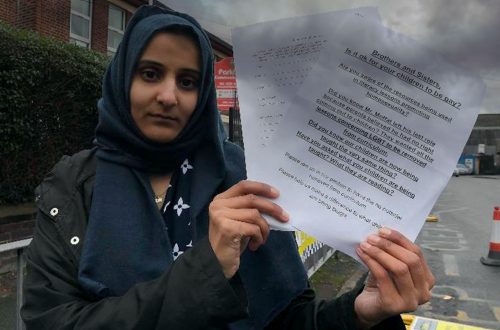This is a cross-post by Shiraz Maher from Standpoint Magazine
*************
Pity the Islamists; the rug has been pulled out from under their feet.
There is a lot of debate at the moment about what the fallout from the Middle East’s uprisings will mean for the region. Is this the start of an Islamist uprising or the birth pangs of a more liberal and pluralistic Arab world?
I recently returned from Egypt where I was covering events in Tahrir Square for this magazine. My thoughts are expressed in my dispatch – but, in summary, I think those predicting the worst are way off the mark.
Consider Wael Ghonim. Google’s marketing manager in Dubai, he represents Egypt’s upwardly mobile, affluent middle-class. He created the “we are all Khalid Said” facebook page that first sparked the unrest in Cairo. When the trouble started, rather than watch it on al-Jazeera, he left the security and comfort of Dubai to join the protesters in Tahrir Square.
What followed next was inevitable. Ghonim was arrested and accused of treason. He was placed in solitary confinement throughout his internment, threatened with torture and blindfolded for days on end. Ghonim expected as much, but travelled back anyway to support the revolution he helped create.
Contrast that with Yusuf al-Qaradawi’s belated arrival last week. Unlike Ghonim, Qaradawi cowered in Qatar until Mubarak was deposed. I suspect Qaradawi waited because he knows Ghonim enjoys more support among the protesters than he ever could.
Despite the bravado of Islamist leaders, it has been a remarkable feature of these uprisings to observe just how conspicuous the lack of Islamic slogans and banners has been.
That is the reality of what is transpiring on the ground: secular youths, women and a burgeoning labour movement are driving these revolutions forward. They are fighting for very simple things: rights, freedom, and accountability.
And that sidelining of the Islamist movement is not just limited to the Middle East. Pity, too, my erstwhile comrades in Hizb ut Tahrir. Time was when the members in Britain told each other to keep their suitcases packed because “Khilafah is on the horizon”.
“Any day now”, they would say while gorging a two-piece chicken and chips meal from Chicken Cottage, “the cool shade of the Khilafah will return”.
It’s time to unpack those suitcases, chaps.
Their first humiliation came during the Egyptian revolution when they staged a demonstration outside the Egyptian embassy. Here’s what happened when they showed up:
Hizb Ut-Tahrir Britain arrived to take part in an emergency picket at the Egyptian Embassy, but there they met a group of Egyptians “from different political & ideological backgrounds” had already planned to hold a peaceful protest to “show solidarity & support of our fellow Egyptians in our beloved country” who have been protesting in Egypt since Tuesday. Hizb Ut-Tahrir were apparently told very firmly that the embassy protest – like the Egyptian revolution – was to be entirely non-sectarian and that they were not welcome there.
So Hizb ut-Tahrir were forced instead to hold their own separate demonstration around a hundred yards away around the corner along South Audley St, where they were spread out along the pavement between South Street and Hill Street.
“Mubarak out, Islam in,” and “Allah take Mubarak the pharaoh,” chanted Islamist protesters, including organisers Hizb ut Tahrir, a hardline Islamist group. Women and men in the group protested separately.
Nearby, other demonstrators were careful to distinguish themselves from the Islamists, sticking to secular chants.
“We’re completely unrelated to that demonstration … It feeds into Western fears on how it would affect their interests, and that’s the excuse the Egyptian government is using to avoid change,” said protest organiser Rafik Bedair, 36.
Whatever you think of Hizb ut Tahrir, you have to give them top marks for effort. Undeterred by that setback, the party then turned up outside the Libyan embassy last weekend. Again, the result was the same.
At around 4.30pm a group of Hizb ut-Tahir supporters had arrived waving black flags and began chanting. At this, the Libyans used the sticks which previously held banners as a makeshift barrier in an attempt to separate that group from the rest of the main protest. One of the Libyan organisers called the police and demanded that the steel barriers should be re-configured so as to separate Hizb ut-Tahir group from the others in the protest.
“They are not welcome” a man shouted to me about the newcomers, “They have nothing to do with us, they are for themselves”
One of the protesters with the Hizb ut-Tahir group told me, “We are for the removal of Gaddafi, but in his place we want and Islamic system”. I pressed him further by asking what about the Libyan call for democracy. “We don’t want democracy” he answered.
Many of the Libyans were angered by the appearance of the Hizb ut-Tahir supporters and demanded that the press knew that they were unwelcome at their protest.
Oh dear.
There are grounds for cautious optimism here. The future of the Middle East is in flux, and the contours of its political landscape are being dramatically recast by a youthful protest movement seeking basic rights – not a theocracy. We must find ways to lend them our support.
As for the future of the Islamists, I hope Willie Wonka has summed up their fate:


